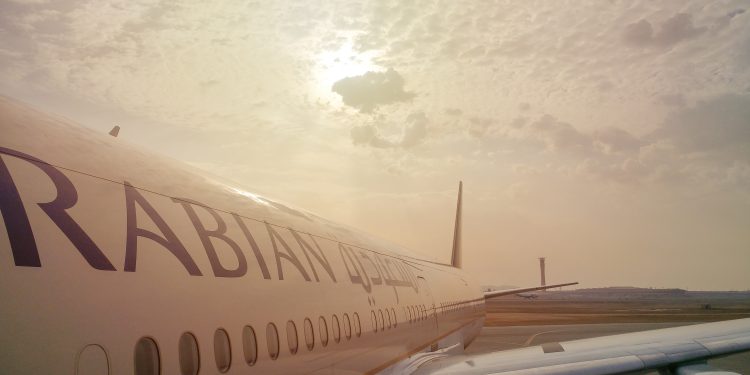Saudi Arabia is actively engaging with leading aircraft manufacturers Boeing and Airbus to secure the approval of their locally produced aluminum and titanium for use in airplane construction. This initiative is part of the kingdom’s broader strategy to expand its manufacturing capabilities domestically.
In pursuit of certifications, which could alleviate the aircraft makers’ supply chain challenges, the kingdom is also exploring the production of additional aircraft components on its soil. This was revealed by the Saudi General Authority of Civil Aviation (GACA).
Abdulaziz Al-Duailej, the president of GACA, shared insights on the matter during an interview before the commencement of the Future Aviation Forum in Riyadh. He highlighted the interest from companies such as Boeing, Airbus, and Embraer in establishing permanent facilities for certain components within Saudi Arabia.
The push into the metals and mining sectors is a key element of Saudi Arabia’s economic diversification efforts, moving away from its traditional reliance on oil. These advancements come as the kingdom is poised to place significant new orders for airplanes. Crown Prince Mohammed bin Salman is steering the nation to develop its transportation sector, which includes revamping the aviation industry and launching new airlines.
Signifying this growth trajectory, Saudia, the national carrier, has recently placed an order for 105 narrowbody jets from Airbus, marking the largest order in the airline’s history. Although Saudia sought an even larger fleet, it faced constraints in securing further delivery slots from Airbus until 2032.
Riyadh Air, a forthcoming airline backed by Saudi Arabia’s sovereign wealth fund, along with Saudia, have been procuring aircraft from Boeing. Last year, Boeing announced its intention to collaborate with Saudi conglomerate Tasnee to research the development of aviation-grade titanium in the kingdom. Tasnee is a significant producer, accounting for approximately 10% of global titanium sponge supply, a material vital for the aviation industry.
Despite recent challenges, Al-Duailej views Boeing as maintaining its lead in the aviation manufacturing sector. With a goal of attracting $100 billion in investments into the aviation sector by 2030, Saudi Arabia is anticipating that a substantial portion of this investment will come from its sovereign wealth fund. According to Al-Duailej’s projections, nearly half of the investment will be allocated to airport and infrastructure development, with the remainder directed towards aircraft acquisitions and related activities.
Plans are also underway for the privatization of GACA-operated airports by 2030. Abha International Airport is next on the list for privatization, attracting interest from international entities including global operators, contractors, and asset management firms.


